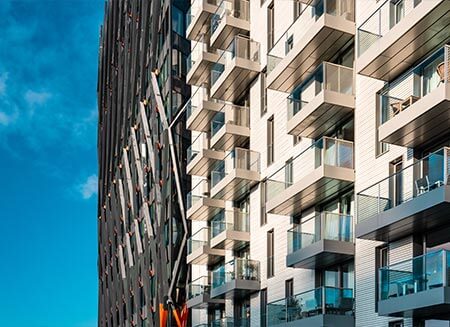Since Section 130 of the Building Safety Act 2022 (“BSA”) came into force, the High Court has had the power to make a building liability order (“BLO”) if it considers it just and equitable to do so.
The curious and unique nature of a BLO is that it uses a very sharp stick to poke through the ‘corporate veil’.
As a short reminder, the ‘corporate veil’ doctrine has long provided that a shareholder is not liable for the debts or liabilities of a company because those shareholders are not party to the contracts of the company in which it owns shares. Similarly, companies with mutual parent companies are not liable for the debts or liabilities of their ‘sister companies’.
However, since June 2022 BLOs have allowed claimants to pursue parent companies and sister companies of companies which are deemed to have a relevant liability under the BSA, including under the Defective Premises Act 1984 or as a result of a building safety risk.
2024 saw case law provide some clarity regarding the operation of BLOs. In particular, following Willmott Dixon Construction Ltd v Prater [2024] EWHC 1190 (TCC) we know:
- Claims for a BLO can proceed before liability has been determined in the main claim (i.e., against the company which is deemed to have the relevant liability).
- Section 130 of the BSA does not require the party against whom the BLO is sought to be joined to the main claim.
Nevertheless, some outstanding questions remain, such as:
- Who can apply for a BLO? The BSA is silent on that point.
- In what circumstances will the Courts consider it “just and equitable” to make a BLO? Whilst we suspect the BSA itself will provide a degree of guidance (in that liability for the cost of remediation should fall on the original developer), this has yet to be commented on in case law.
- In what circumstances, and in which jurisdictions, will foreign courts enforce a BLO against companies registered in their jurisdiction? The huge amount of foreign investment in the UK, especially in London, makes it likely that companies responsible for the development of properties in the UK will have parent or sister companies based abroad. With the UK having ratified the 2019 Hague Judgments Convention this year, which comes into force in July 2025, the ability to enforce Judgments from UK Courts in the EU will be at its highest since the Brexit transition period ended. Whether BLOs fall within the scope of one of the bases for recognition and enforcement under the convention, or whether the way in which BLOs do away with the corporate veil might be deemed contrary to the public policy of an enforcing state, such that enforcement would not be granted, is yet to be seen.
Key contact

Tim Claremont
Partner
tim.claremont@brownejacobson.com
+44 (0)20 7871 8507









































